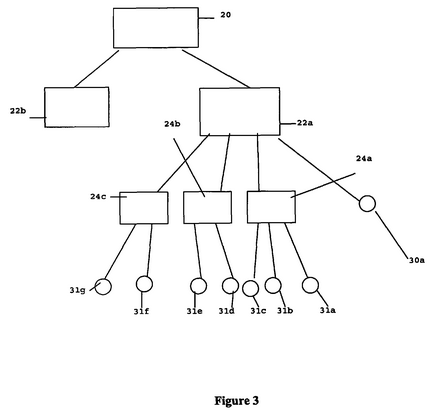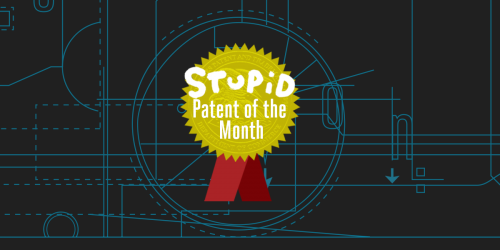 Our ongoing Reclaim Invention campaign urges universities not to sell patents to trolls. This month’s stupid patent provides a good example of why. US Patent No. 8,473,532 (the ’532 patent), “Method and apparatus for automatic organization for computer files,” began its life with publicly-funded Louisiana Tech University. But in September last year, it was sold to a patent troll. A flurry of lawsuits quickly followed.
Our ongoing Reclaim Invention campaign urges universities not to sell patents to trolls. This month’s stupid patent provides a good example of why. US Patent No. 8,473,532 (the ’532 patent), “Method and apparatus for automatic organization for computer files,” began its life with publicly-funded Louisiana Tech University. But in September last year, it was sold to a patent troll. A flurry of lawsuits quickly followed.
Louisiana Tech sold the ’532 patent to Micoba LLC, a company that has all the indicia of a classic patent troll. Micoba was formed on September 8, 2016, just a few days before it purchased the patent. The patent assignment agreement lists Micoba’s address as an office building located in the Eastern District of Texas where virtual office services are provided. As far as we can tell, Micoba has no purpose other than to sue with this patent.
So what does Micoba’s newly acquired patent cover? Claim 13 reads:
A computer system comprising a processor, memory, and software for automatically organizing computer files into folders, said software causing said computer system to execute the steps comprising:
a. providing a directory of folders, wherein substantially each of said folders is represented by a description;
b. providing a new computer file not having a location in said directory, said computer file being represented by a description;
c. comparing said description of said computer file to descriptions of a plurality of said folders along a single path from a root folder to a leaf folder; and
d. assigning said computer file to a folder having the most similar description.
In other words, put files into folders that contain similar files. Do it on a "computer system" (in case you were worried office workers from the 1930s might have infringed this patent).
For a software patent, the ’532 patent is unusually free of patent jargon and pseudo-technical babble. Its specification (this is the description of the invention that comes before the claims) does describe a method for determining when the contents of a file match a folder description. The patent proposes representing folders and files as vectors (which should reflect the frequency of particular words found within). The patent suggests assessing similarity by calculating the dot product of these vectors. But, even assuming this was a new idea when the application was filed in 2003, many of the patent’s claims are not limited to this method. The patent effectively captures almost any technique for automatically sorting digital files into folders.
 The ’532 patent issued in June 2013, about a year before the Supreme Court’s decision in Alice v. CLS Bank. In that case, the Supreme Court held that an abstract idea (like sorting files into folders) does not become patentable simply because it is implemented on a computer. The ’532 patent should be found invalid under this standard. In our view, this patent has no value after Alice except as a litigation weapon.
The ’532 patent issued in June 2013, about a year before the Supreme Court’s decision in Alice v. CLS Bank. In that case, the Supreme Court held that an abstract idea (like sorting files into folders) does not become patentable simply because it is implemented on a computer. The ’532 patent should be found invalid under this standard. In our view, this patent has no value after Alice except as a litigation weapon.
Louisiana Tech represents that it “seeks industrial partners to commercialize the technology developed at Louisiana Tech for the benefit of society.” But it completely failed to consider this public interest mission when it sold the ’532 patent to Micoba. Within two months of the sale, Micoba had filed nearly a dozen cases in the Eastern District of Texas, suing companies like SpiderOak and Dropbox, alleging they infringed at least claim 13 of the ’532 patent. Instead of benefiting society, Louisiana Tech unleashed a torrent of wasteful litigation.
According to RPX, Micoba is associated with IP Edge, which itself is associated with eDekka (the biggest patent troll of 2014) and Bartonfalls (the winner of our October 2016 Stupid Patent of the Month for its patent on changing the channel). Bartonfalls’ trolling campaign recently collapsed when a judge ruled that its patent infringement contentions were “implausible on their face.” If RPX is correct that these companies are connected, Louisiana Tech has hitched its wagon to one of the biggest trolling operations in the nation.
EFF’s Reclaim Invention project was launched to stop universities from feeding patent trolls like this. The project includes a Public Interest Patent Pledge for universities to sign stating that they will not sell their patents to trolls. We also drafted a model state law to help ensure that state-funded universities don't sell their inventions to patent trolls. You can ask your university to sign the pledge.


 Tell your university: Don’t sell patents to trolls.
Tell your university: Don’t sell patents to trolls.


